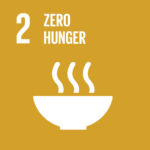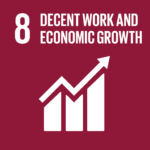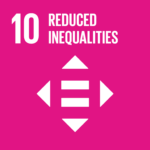Inequality and sustainability reporting : addressing climate change requires businesses to ensure their sustainability strategies do not further deepen existing inequalities.
In the labyrinth of corporate complexities, the link between climate change and its unequal repercussions often slips into obscurity. For a truly transformative leap towards sustainability, it’s imperative for businesses to acknowledge and address the social disparities and injustices intertwined with environmental concerns. The introduction of sustainability reporting can become a powerful catalyst in this holistic transformation.
RELEVANT SUSTAINABLE GOALS




The Blind Spot in Sustainable Business Practices: Inequality
A glaring omission in global sustainable development strategies is the escalating inequality levels. This oversight represents not just a humanitarian catastrophe but also a formidable barrier to achieving significant and long-lasting sustainable change.
The data speaks volumes: Credit Suisse points out that over the last decade, the world’s wealthiest 1% raked in 54% of the newly created $127.5 trillion in wealth. In stark contrast, a mere 0.7% trickled down to the bottom half of the global population, primarily residing in the Global South. This reality is increasingly resonating in the business world, highlighting inequality as a systemic risk that can undermine trust, instigate unrest, stifle economic growth, and unravel social bonds.
In a wake-up call, the Business Commission to Tackle Inequality (BCTI), with more than 30 multinational corporations at its helm, released a report underlining the detrimental effects of rising inequality on businesses. These include increased volatility in the business environment, supply chain insecurity, erosion of productivity and innovation, regulatory risks, and reputational damage.
This report marks a shift in investor priorities as they now recognize corporate performance on inequality as a systemic risk factor. Responding to this trend, the development of a new framework for disclosing social and inequality-related risks is underway, following the pattern of the Task Force on Climate-related Financial Disclosures (TCFD) and the Task Force on Nature-related Financial Disclosures (TNFD).
Inequality and Climate Change: An Intertwining Spiral
Inequality, with its profound humanitarian and economic costs, also hampers our ability to tackle global existential threats such as climate change. As wealthy countries outsource labor and industries to developing nations, unregulated and less sustainable practices drive up emissions. At the same time, poverty forces these communities into a corner, leading to harmful agricultural practices, deforestation, and overexploitation of natural resources.
In a vicious cycle, climate change, fueled by inequality, exacerbates inequality even further. As the climate worsens, access to crucial resources diminishes, which deepens insecurity and inequality.
Embracing Inclusivity in Sustainability Reporting
Effective solutions necessitate the inclusion of those most affected by climate change yet often neglected in crucial discussions. Sustainability reporting, when implemented inclusively, can bring these marginalized voices to the fore, enriching our understanding of climate issues and enhancing the relevance and success of the solutions proposed.
The introduction of ‘double materiality’ encourages businesses to engage with two stakeholder groups: users of information and ‘rightsholders’ — those affected by the organization’s activities. The inclusion of rightsholders in sustainability reporting provides a more comprehensive view of the potential impacts of climate change, leading to more equitable and informed decisions.
To truly combat climate change, businesses need to ensure their sustainability strategies and reporting practices do not exacerbate existing inequalities. The new frameworks provided by double materiality and BCTI offer invaluable tools to assess and disclose impacts on sustainability-related issues.
By adopting a more holistic approach to sustainability reporting and impact, businesses can pave the way for reducing inequalities and achieving meaningful, sustainable change. The intersection of sustainability, inequality, and social justice, once a blind spot, can finally become the cornerstone of corporate sustainability strategies.
You may also be interested in :
Lead image courtesy of Quang Nguyen Vinh from Pexels.


